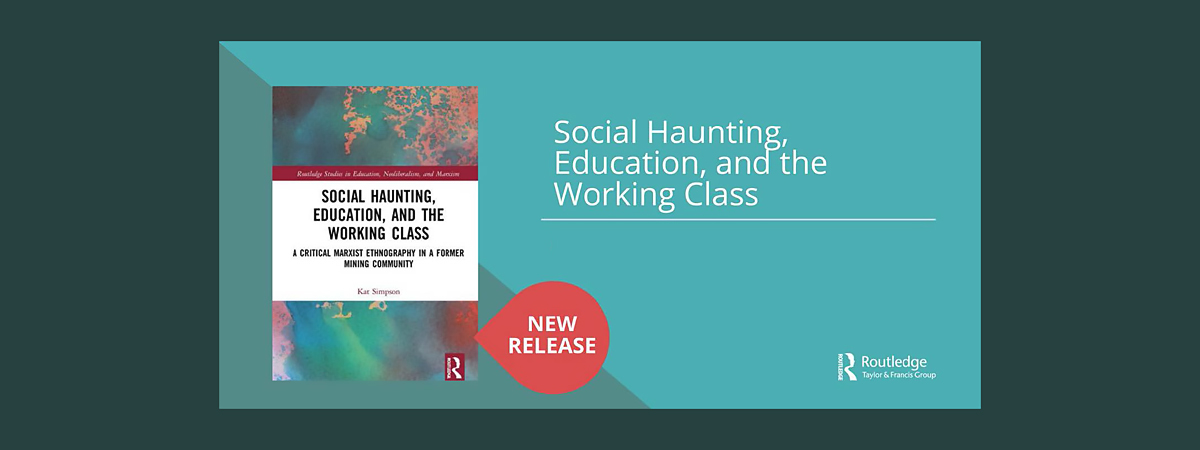Dr Kat Simpson
SCHOOL OF EDUCATION AND PROFESSIONAL DEVELOPMENT
A Senior Lecturer in Education and Community Studies, Dr Simpson joined the University of Huddersfield in 2020 and teaches undergraduate, postgraduate and teacher-training programmes, as well as being the Course Leader for the BA (Hons) Primary Education Studies. She has just published her first book with Routledge entitled, ‘Social Haunting, Education and the Working Class’ and provides an insight into teachers’ perceptions of how deindustrialisation has affected education for the working-class.
GROWING up in a former mining community, and through her own personal and professional experiences of schooling in the former coalfields, Dr Kat Simpson’s new book entitled Social Haunting, Education and the Working Class demonstrates her research interests in education and social class, especially the experiences of teachers and pupils in working-class communities.
The impact of deindustrialisation
Based on a critical Marxist ethnography, conducted at a state primary school in a former coalmining community in the North of England, this book provides insight into teachers’ perceptions of the effects of deindustrialisation on education for the working class.
The book draws on the notion of social haunting to help understand the complex ways in which historical relations and performances, reflective of the community’s industrial past, continue to shape experiences and processes of schooling.
The arguments presented enable us to engage with the ‘goodness’ of the past as well as the pain and suffering associated with deindustrialisation. This, it is argued, enables teachers and pupils to engage with rhythms, relations, and performances that recognise the heritage and complexities of working-class culture.
The book recognises the importance of reckoning and harnessing with the fullness of ghosts, if schooling is to be refashioned in more encouraging and relational ways, with and for the working class.
This book is of particular interest to researchers, academics, and educators with an interest in the sociology of education, and social class and education in particular. Those interested in schooling, ethnography and qualitative social research will also benefit from the book.
- You can purchase, preview and find out more about the book via the publisher's website at https://www.routledge.com/Social-Haunting-Education-and-the-Working-Class-A-Critical-Marxist-Ethnography/Simpson/p/book/9780367568153
More news from the Department of Education and Community Studies
University News - 0 articles matching your search
University News - 1 article matching your search
University News - {{numberOfPosts}} articles matching your search
- News Story

